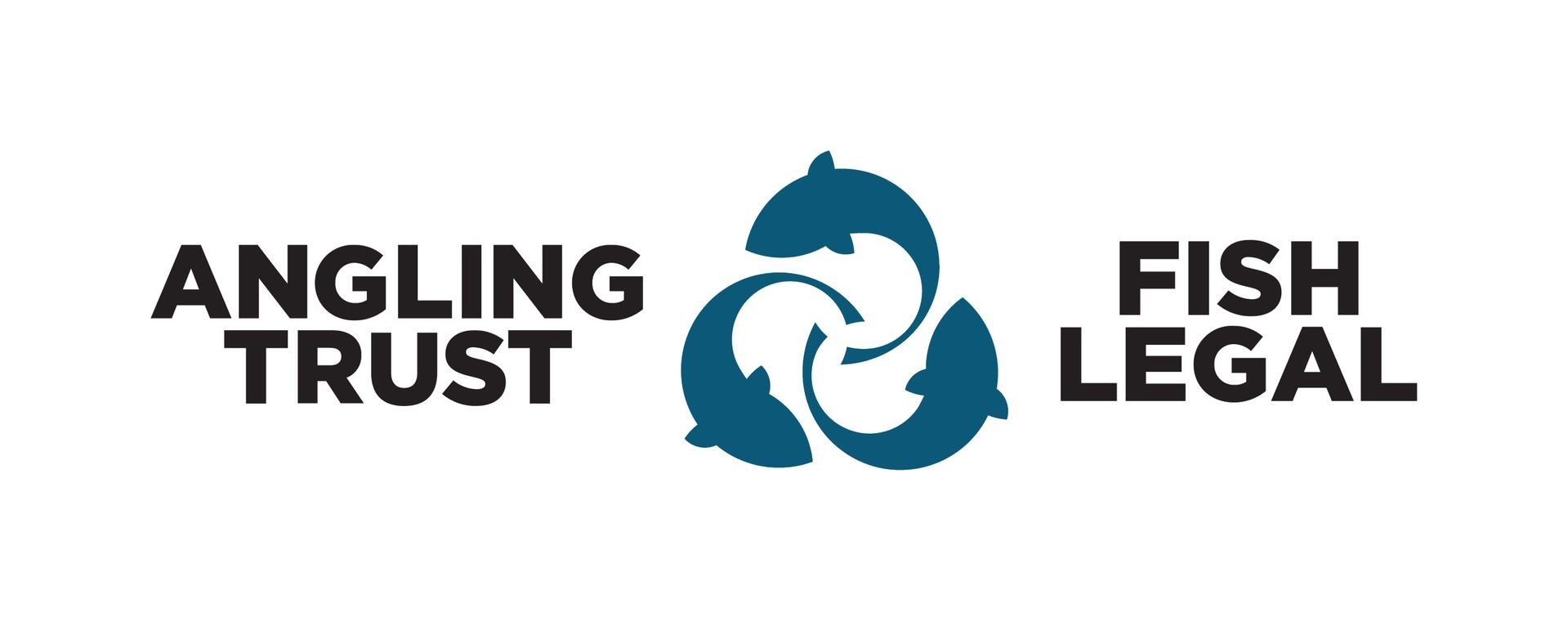Grayling conservation and the need for collaboration
"The Grayling Society has limited resources to allocate to conservation and therefore the practical way to make a significant difference is by collaboration with all other stakeholders. We work with many organisations across the charitable, government and private sectors to achieve our aims and will continue to do so.
The Grayling Society have collaborated with the Angling Trust in developing the Water Quality Monitoring Network since before launch of the pilot scheme on the River Severn and the national roll out. That initiative continues to expand and is an excellent example of what can be achieved when organisations with a similar aim pull together in the spirit of collaboration. There are numerous organisations with the same goal, clean rivers, whether for Grayling, other fish, swimmers, anglers, pets or even surfers and paddlers, in fact society in generally. The Grayling Society collaborates with The Wild Trout Trust, Wild Fish, The Rivers Trust, local catchment trusts, Surfers Against Sewage and others. This unstoppable momentum to clean up our rivers is about the removal of excess Phosphates, Nitrates, Ammonia and other noxious substances in our waterways.
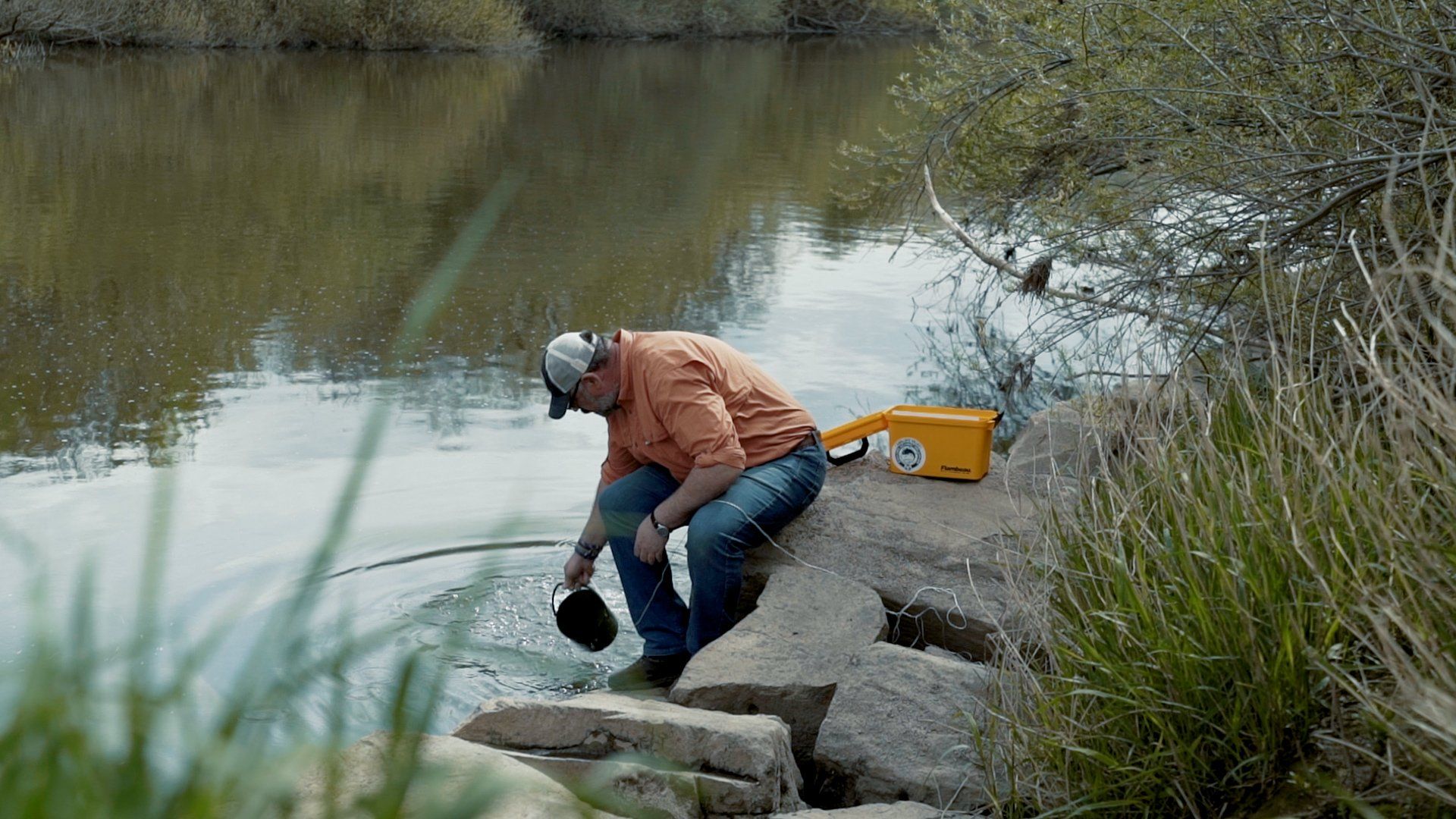
The most publicised culprits of this pollution being the Water Companies who have been vilified by campaigners, you will all be familiar with that. However if the water companies cleaned up their act totally that would only solve 25% of the problem. The Government, Environment Agency, DEFRA. and OFWAT have been failing to protect rivers effectively for decades. Now we have Theresa Coffey, Mark Spencer and Richard Benyon let's hope collaboration with them is the right course and they remain in office long enough to have an impact.
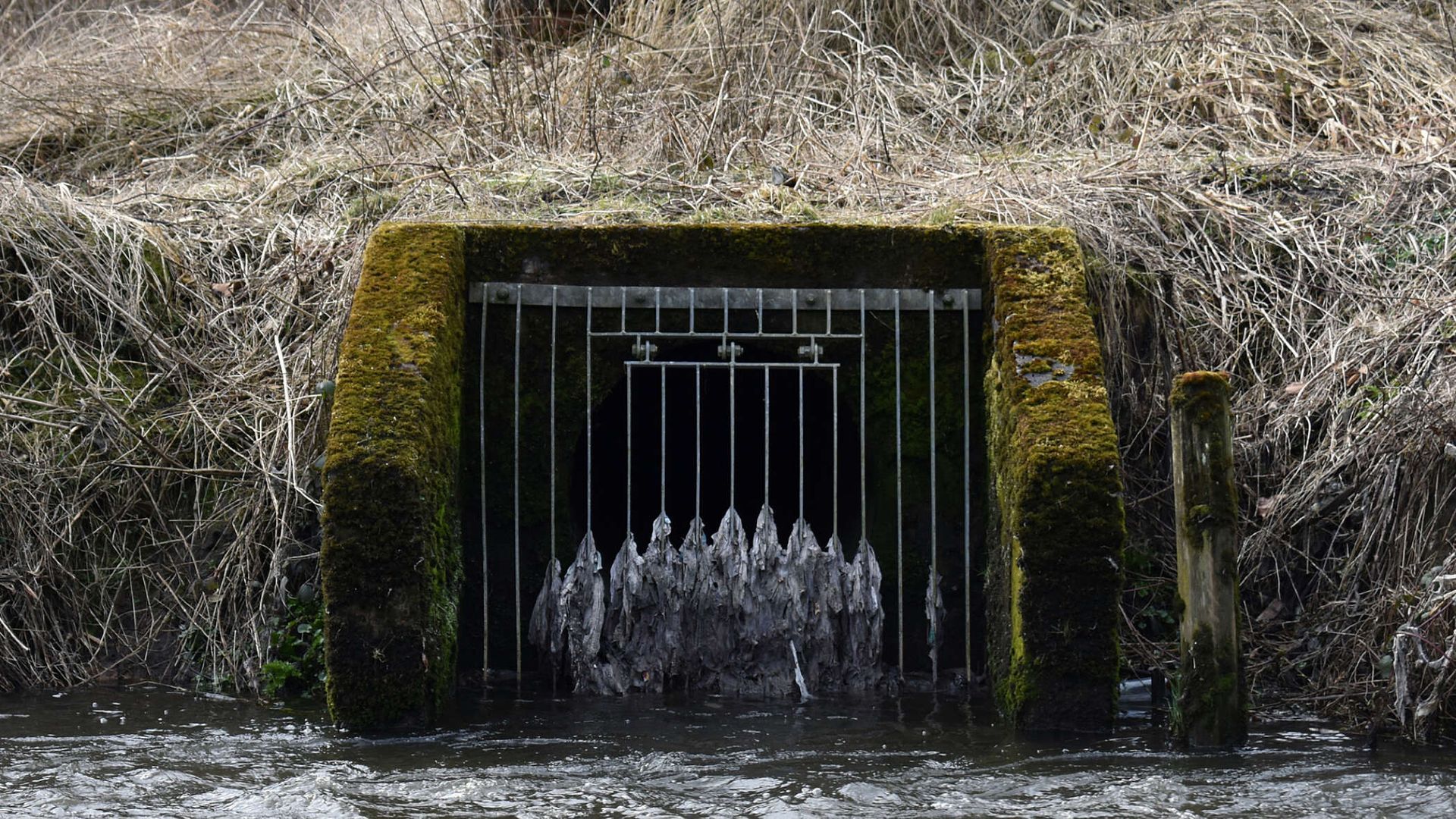
There is no sign of a solution by fining water companies or punishing senior directors as criminals, unless of course there is criminality and they must answer for it as we all do. Ask yourselves where the fines have gone, certainly out of the water industry. Though the government have now announced that fines will be used to clean up rivers but no indication is clear how the funds will be allocated and on what initiatives. We have to collaborate with water companies as they are the solution to part of the pollution problem. We are where we are and cannot turn the clock back. The current infrastructure of the sewage system was designed by the Victorians. The fact that it has not been modernised for decades and particularly since privatisation of water companies is scandalous. No point wringing our hands over that, they are huge private companies that must earn profit to survive, dividends will be paid and bonuses earned, investment in modernisation depends on their solvency. Difficult as it may seem we have to work with them in the spirit of collaboration .In my own area 6, 8 and 10 United Utilities are responsible and I have instigated meetings at main board level to stimulate progress so far as a small organisation is able to, with surprisingly encouraging results. I am optimistic that United Utilities are convinced by the need for collaboration and recognise that they must do better in environment improvement.
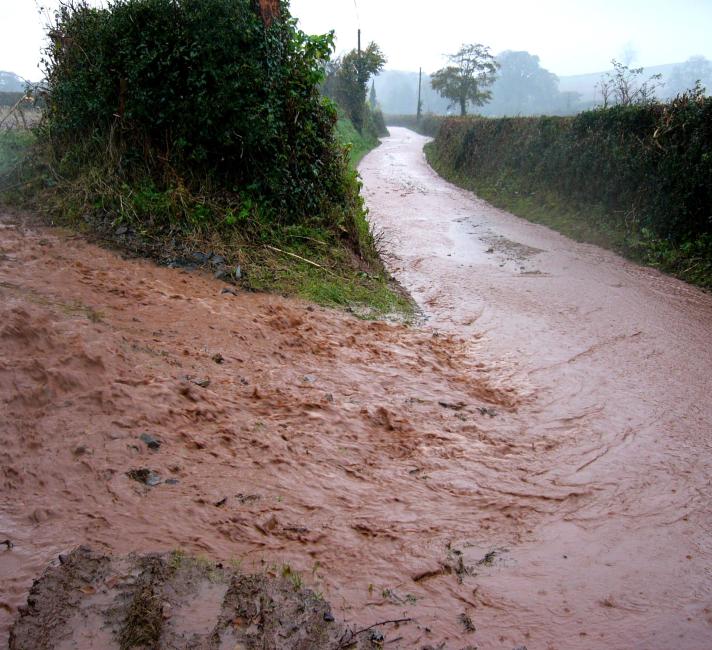
Turning now to agriculture and rural management, 45% of the problem of river pollution, Collaboration with farmers and their representatives is essential. Adequate rules and environmental protection legislation are already in place. Farming is vital for our future and a solution has to be found working with them. Pollution varies depending on catchment and the type of farming therein. Dairy farming uses fertilizer extensively to encourage the growth of grass to feed voracious cattle and produce good milk. Over fertilization however, when the land no longer needs it, causes run off into water courses and into rivers through culverts, ditches, brooks and tributaries. Lack of accurate application of muck and fertilizer by spraying too close to water courses has the same effect. Initial testing of the land and more care in application can help significantly. Beef and sheep farming are not immune from criticism and need to be vigilant. Land compaction causes excessive run off as the fertilizer does not seep as effectively as it should into the soil. Arable farming for example potatoes andmaize use fertilizer and muck which runs off the land when the crops are harvested as the weather at the time of year is invariably heavy rainfall. The use of slurry, while needed as an economic source of nutrients can cause pollution problems due to over use and of course spillage.
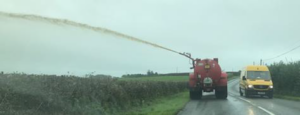
Intensive farming practices are causing massive problems with the discharges into rivers. None more obvious than in the River Wye catchment where numerous chicken farms are discharging waste into the river and are providing fertilizer for farmers which is being spread indiscriminately over the land and finding its way into the river. Control of these unacceptable practices rests with the chicken farmers and the local farmers who must be collaborated with to ensure they are doing all they can to prevent the harm caused while continuing their valuable role in supplying the food chain. Other intensive food production practices for example cheese manufacture are causing huge damage to the ecology of adjacent rivers into which waste products are being allowed to escape or being deliberately discharged. Farmers must practice better soil management to prevent over fertilization as well as compaction which contributes to excessive run off rather than absorption. Now turning back to the water companies on a different tack of abstraction of water from rivers and the damage done to the environment in times of drought. Whenever you see a leak report it, as every gallon that is lost as a result of it not being stored for the dry times will be extracted from rivers to replace it.
The problems caused by urban development and transport is responsible for between 10% and 15% of the pollution of our rivers as houses continue to be built with combined sewage systems if not on the premises further down the line as a result of the right to connect. Collaboration with the local authority who are the relevant planners is essential to ensure every precaution is taken to protect the environment when consent for new builds is granted. Local authorities are also the relevant highway authority. Their role in administering the highway network leads to road run off from salt applied in bad weather to prevent accidents which enters the river systems. The highway networks are also a source of pollution from the deposits of all kinds left by motor vehicles for example plastics from tyre wear, as over 55% of the content of motor vehicle tyres is plastic not as many of you may think, predominantly rubber. The dust left on the roads from brake pad wear is a serious pollutant. The highways authority are responsible for channelling the highways gullies to control and direct the passage of these pollutants away from the water courses and of course keeping them clear and free running, sadly in an inefficient manor at present. The presence of plastics in our rivers is a matter that we all bare a responsibility for to a large or smaller degree, no matter how much we try we will all use plastic and will continue to do so for years to come. We can only hope for the development of an economic system of destruction of all plastics that will provide a way to rid us of this substantial pollutant. We can avoid, where ever possible, the purchase of plastic products, choose a degradable alternative. We can stop using plastic based products like wet wipes and we can certainly stop putting them down the toilet and risking them entering the sewage system and water ways. Legislation by the government may be the practical way to prevent this by banning their use so collaboration with our local M.P. and government departments is essential. The recent government announcement banning the use of single use plastic knives, forks, plates and utensils is to be welcomed and progress toward more extensive and effective control.
Collaboration with fishermen to reduce plastic use is obvious, we should not be buying plastic based or plastic wrapped products where ever there is an alternative. We should be using natural materials for fly tying not plastic, there is clearly an unacceptable aspect to fisherman casting plastic into rivers. The deposit of micro and nano plastics in our water systems is leading to those substances turning up in fish and even in human blood streams. The plastic we all have is better used and kept out of the river systems as it is likely to outlive us all and our children's ,children's, children.
Turning now to the need for collaboration with the general public whose behavior contributes significantly to the problem. Education, marketing and legislation are essential tools to influence their conduct for example the extraneous materials that are habitually flushed down the toilet from wet wipes, sanitary products, discarded legal and illegal drugs, other substances superfluous to requirements given an easy, convenient exit from the home. The government and the water companies have a role to play here providing the finance for advertising and education. The public also have a huge responsibility in areas where there are no mains drainage, maintenance and regular servicing of septic tanks and sewage treatment plants is essential to prevent contaminated runoff entering water courses. Both types of sewage disposal systems need to be regularly de-sludged and this is not a fact that is readily appreciated by many who rely on the systems. There are, of course other organisations contributing significantly to the problem, for example Industry, of diverse description, allowing discharges into the water course, mining operations and food manufacture included. We are facing a massive task in eliminating pollution but we can all contribute no matter how small a step we are able to take. The essence of effective progress is collaboration by all stakeholders to achieve clean rivers and a better environment for us all to enjoy.
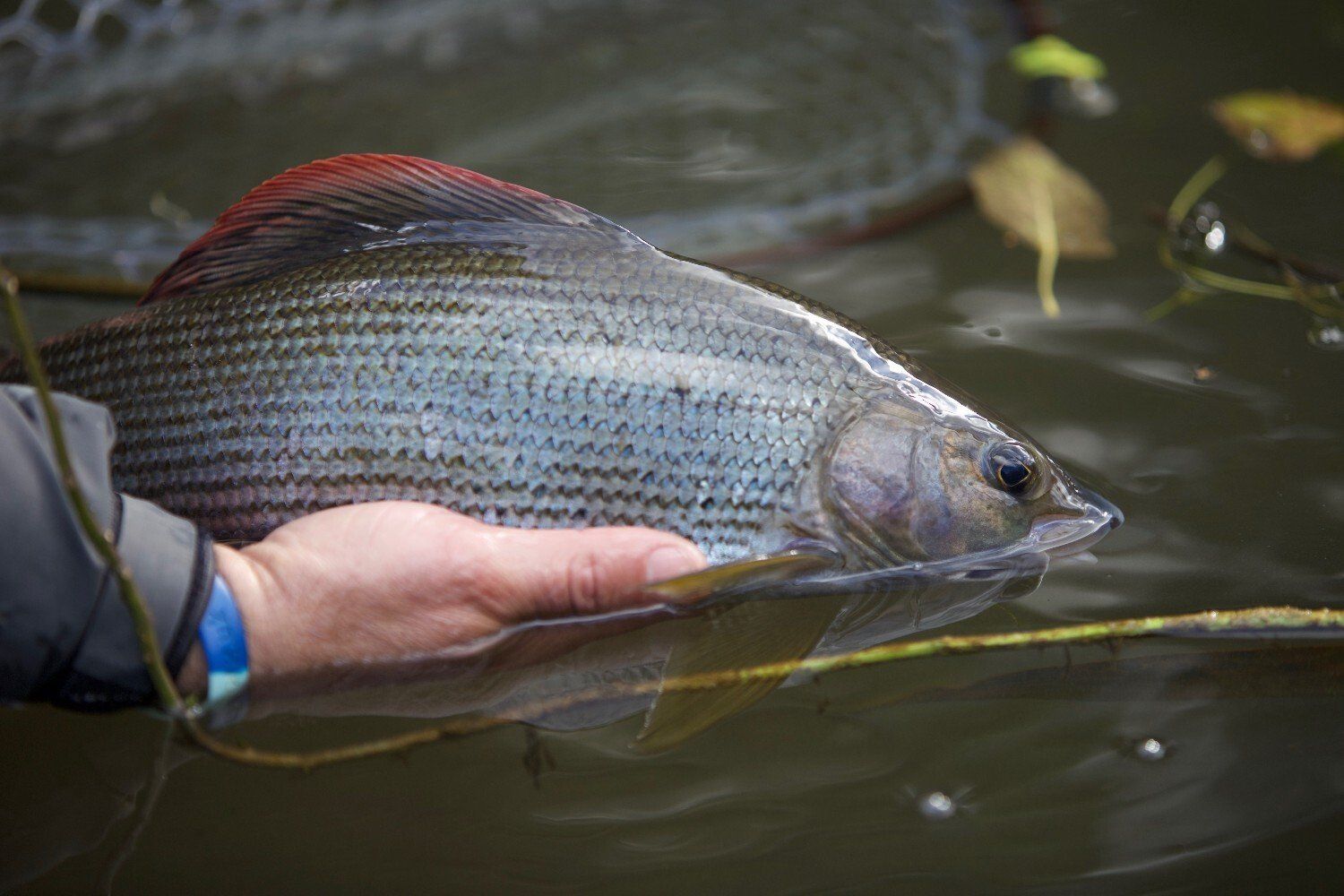
I couldn't allow the opportunity to pass without a word regarding fish handling which in itself is an important aspect of conservation and one all fisherman can collaborate on. Never touch fish with dry hands, always use barbless hooks or flatten the barb as a minimum. Use fish friendly nets but I have a slight conscience about advocating that as they are mainly plastic based. If a fish is deep hooked cut the line don't go digging about in their throat causing more damage, the loss of the fly is insignificant compared to the death of the fish. Leave fish in the water as much as possible, avoid the necessity for photographs, particularly those holding up Grayling dorsal fins. Get yourself a weigh net and your loved ones and friends will believe how beautiful the fish was, you will never forget it anyway if it is really worth a photograph. Lets respect our quarry and make sure we do all we can to ensure they live to swim another day. I have not touched on specific habitat improvements and protection matters but I will have to leave that for another day."

From a speech delivered by Ron Taylor, the Grayling Society Conservation Officer, at the Grayling Society Weekend on the 5th November 2022.
You can contact Ron at conservation@graylingsociety.net
